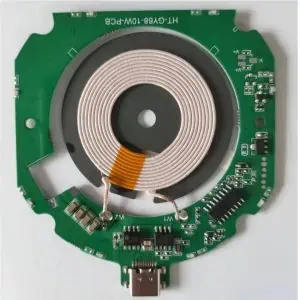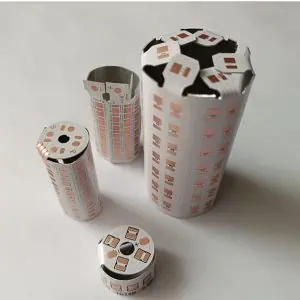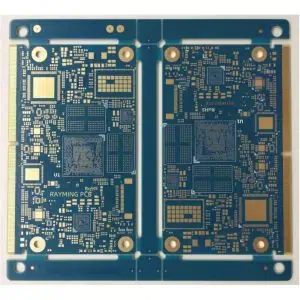4-Layer Rigid-Flex PCB Pricing Guide
When it comes to pricing for a 4-layer Rigid-Flex PCB, it’s important to note that costs can vary significantly based on several factors.
Factors Affecting Price
- Board Size: Larger boards generally cost more.
- Quantity: Higher quantities typically reduce per-unit cost.
- Material Quality: High-performance materials increase cost.
- Copper Weight: Heavier copper is more expensive.
- Surface Finish: ENIG is typically more expensive than HASL.
- Minimum Trace/Space: Tighter tolerances increase cost.
- Via Technology: Micro vias or buried vias add to the cost.
- Turnaround Time: Faster production usually costs more.
Estimated Price Ranges
Note: These are rough estimates and can vary widely based on the factors mentioned above and the specific manufacturer.
-
Low Quantity (1-10 pieces):
- Small size (e.g., 2″ x 3″): $100 – $300 per board
- Medium size (e.g., 4″ x 6″): $200 – $500 per board
- Large size (e.g., 8″ x 10″): $400 – $1000+ per board
-
Medium Quantity (50-100 pieces):
- Small size: $50 – $150 per board
- Medium size: $100 – $300 per board
- Large size: $200 – $600 per board
-
High Quantity (1000+ pieces):
- Small size: $20 – $80 per board
- Medium size: $50 – $150 per board
- Large size: $100 – $300 per board
Additional Costs to Consider
- Tooling charges: One-time fee, typically $100 – $500
- Testing fees: May be charged separately, especially for complex boards
- Shipping costs: Can be significant for international orders
- Expedited manufacturing: Can increase costs by 30-100%
Tips for Cost Reduction
- Optimize design for manufacturing
- Consider standard material options when possible
- Increase order quantity if feasible
- Plan ahead to avoid rush fees
- Consolidate orders with the same manufacturer
Getting Accurate Quotes
For precise pricing:
- Prepare detailed design files (Gerber files, BOM, etc.)
- Specify all requirements clearly
- Request quotes from multiple manufacturers
- Consider both domestic and overseas options
- Discuss DFM (Design for Manufacturing) with potential manufacturers
Remember, the complexity of rigid-flex PCBs often results in higher prices compared to standard rigid PCBs. Always balance cost with quality and reliability requirements for your specific application.





